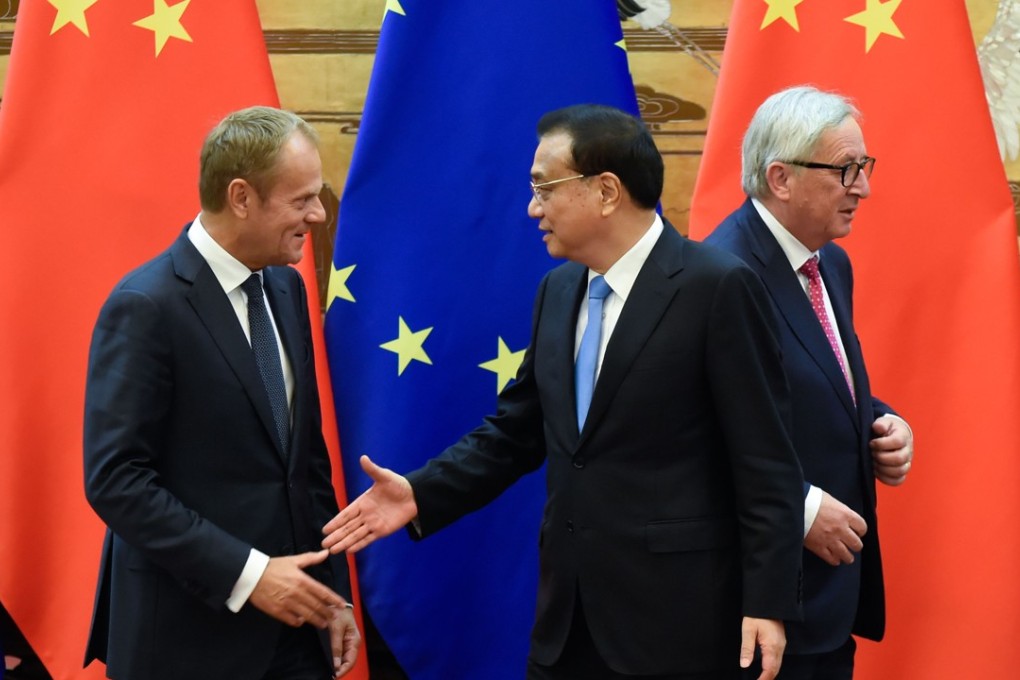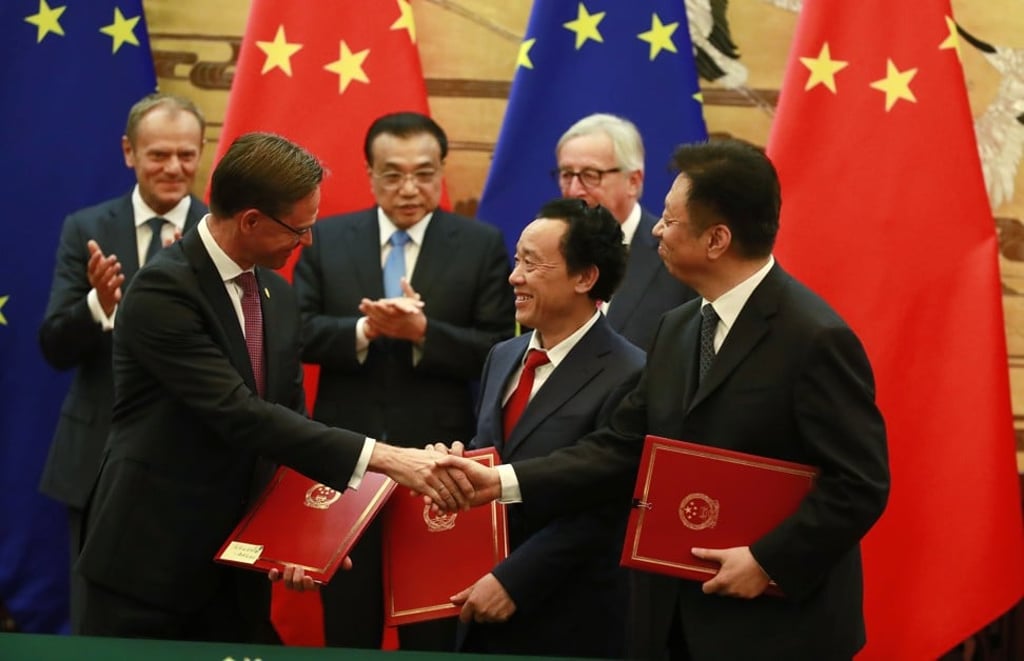China, EU vow to work more closely to defend global trade order
But Beijing and Brussels say they’re not seeking an alliance against Washington

China and the European Union pledged to work more closely to defend the global trading system on Monday, although both sides said they were not seeking a coalition to counter Washington.
Leaders met at the annual China-EU summit in Beijing just hours ahead of US President Donald Trump’s meeting with his Russian counterpart Vladimir Putin in Helsinki – and just after Trump described the EU and China as “foes” of the US on trade and the economy.
Beijing and Brussels issued a joint statement after the summit, saying they were “strongly” committed to resisting protectionism and unilateralism and “firmly supported” the rules-based multilateral trading system centred on the World Trade Organisation.
That statement had not been forthcoming after leaders met at the past two summits because of frictions over issues such as China demanding market economy status at the WTO, and EU discontent over its steel overcapacity.

“It is a common duty of Europe and China, America and Russia, not to destroy this [global] order, but to improve it,” said European Council President Donald Tusk. European Commission President Jean-Claude Juncker was also at the summit, hosted by Chinese Premier Li Keqiang.